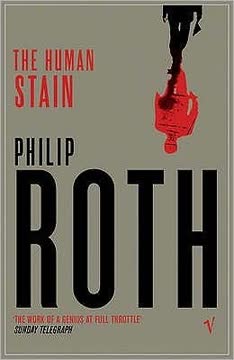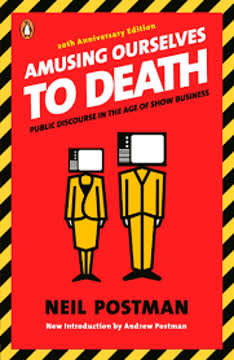Key Takeaways
1. Management: Beyond Control, Towards Coping with Humanity
The study of management, similarly, has to take account of, or find ways to justify not taking account of, the inevitable fallibility and sheer unpredictability of the people who manage and are managed.
Defining management. Management, at its core, involves responsibility for an organization or unit and its members' work. While often associated with direction and control, its colloquial uses—like "managing to break a leg" or "just about managing"—reveal a deeper truth: it's also about coping with the unpredictable, the out-of-control, and the inherently human. This duality highlights that managers don't just direct; they navigate chaos.
Human dimension. The human element is central to management's complexity. Unlike predictable physical entities, people forget, make mistakes, change their minds, and are driven by emotions, making rational prediction of individual behavior nearly impossible. This fallibility means managers must constantly adapt, not just implement, and the most rational approach isn't always the most effective when dealing with people.
Managerial work. Managerial work is characterized by routine administration, troubleshooting, and leadership, often in a highly fragmented and demanding environment. Managers spend most of their time in meetings, on the phone, or responding to emails, constantly switching tasks and moods. The job is never truly "done," requiring immense flexibility and often leading to stress, yet it can also be immensely rewarding, akin to managing a family.
2. Authority's Evolution: From Coercion to Rational Bureaucracy
The traditional authority of a husband over his wife included the authority to beat her.
Early management. Historically, management relied on authority and coercion, particularly in extended families, estates, and military organizations. Physical punishment was common, and systems like slavery or bonded labor enforced compliance. Even in "civilized" societies, violence was a socially legitimized part of authority, reflecting a Theory X view of workers as inherently lazy and needing control.
Legitimate authority. Max Weber identified three forms of legitimate authority: traditional (based on long-standing customs, like a king), charismatic (based on an individual's personal qualities, like an inspirational leader), and rational-legal (based on accepted rules and appointed positions, like a police officer). Real-world situations often combine these types, with coercion sometimes backing up authority when love or respect are absent.
Rise of bureaucracy. As organizations grew in scale and complexity, especially with vast empires and industrial factories, rational-legal authority became paramount. Bureaucracy, characterized by formal rules, clear hierarchies, and positions filled by ability rather than personal connections, emerged as a machine-like system for efficiency. Henri Fayol's principles of management, though more flexible, largely aligned with this rational, structured approach, emphasizing order and the subordination of individual interests to the general good.
3. The Rational Quest: Engineering Efficiency in Management
The capitalist owners of these firms paid the workers what was necessary to keep them working—essentially just what they would be able to earn on their own, without the productivity gains of the firm—and appropriated the surpluses derived from the productivity gains to themselves.
Scientific management. Pioneered by Frederick Winslow Taylor, scientific management aimed to maximize efficiency by applying scientific principles to job design. This involved:
- Work-study and time-and-motion analysis to optimize tasks.
- Codification of optimized systems into standard procedures.
- Worker selection and training for specialized tasks.
- Incentive pay to encourage performance.
The goal was to replace antagonistic relationships with rational consensus, assuming financial self-interest for both owners and workers.
Management science. Post-WWII, management science emerged, leveraging systems engineering, data processing, and mathematical techniques like operations research. While often too complex for general managers, it fostered a "scientific" approach, leading to techniques like Management by Objectives (MBO). Peter Drucker's MBO applied scientific management principles to managers, emphasizing objective setting, measurement, and self-control, assuming managers were autonomous and responsible.
Strategic planning. The 1960s saw the rise of business strategy, rationalizing policy objectives into analytical frameworks. Tools like SWOT analysis, Ansoff's growth matrix, and the Boston Consulting Group matrix provided conceptual frameworks for decision-making. Later, Michael Porter's Five Forces and Generic Strategies models, rooted in industrial economics, offered a new scientific legitimacy, reinforcing the analytical, rationalizing tendency in management.
4. Humanizing the Workplace: The Power of Social Bonds and Culture
The commitment of employees, which McGregor sees as essential for the success of the organization, has to be generated through social and interpersonal relationships and cannot be gained just by economic incentives.
Theory X and Theory Y. Douglas McGregor proposed that managers operate under assumptions about employee motivation. Theory X assumes workers dislike work and need coercion, while Theory Y posits work is natural, and people seek responsibility and self-direction. This shift highlighted the potential of human creativity and the importance of integrating individual and organizational goals through social and interpersonal relationships, moving beyond purely economic incentives.
Human relations movement. Building on Elton Mayo's Hawthorne studies, which showed that social patterns and feelings, not just working conditions, determined output, the human relations movement emphasized cooperation and mutual respect. Researchers like Rensis Likert, Abraham Maslow, and Frederick Herzberg explored participative management, hierarchies of needs, and job enrichment. This movement, though criticized for lacking rigor, highlighted the importance of leadership, team dynamics, and employee well-being.
Organizational culture. The success of Japanese companies in the 1970s, with their high employee commitment, brought organizational culture to the forefront. Japanese management emphasized:
- Collective values and consensual decision-making.
- Lifetime employment and comprehensive welfare.
- Strong corporate cultures fostering trust and teamwork.
Books like "In Search of Excellence" popularized the idea of "simultaneous loose-tight properties"—a strong culture enabling innovation while maintaining direction—as a key to corporate success, though changing established cultures proved challenging.
5. The Rise of Enterprise: Individualism and Performance-Driven Management
In an enterprise setting, managers are recognized to be driven primarily by their own individual achievements, measured in terms of salary and promotion, rather than by the achievements of their company, or of the unit they manage.
Shifting values. The 1980s saw a global shift towards enterprise values, emphasizing self-interest, individual responsibility, and free-market capitalism. This undermined traditional notions of duty and social cohesion, prioritizing measurable, short-term financial outcomes. Money became the ultimate measure of achievement, and the "authentic" inner self, often expressed as entrepreneurial drive, became the approved social identity.
Post-bureaucracy. This individualizing tendency led to "post-bureaucracy," where organizations became more flexible, delayered, and performance-driven. Managers gained autonomy but faced higher expectations and less job security. Individual incentive schemes, especially for top executives, became prevalent, aligning personal financial gain with shareholder interests, though often at the expense of middle and junior managers.
Audit culture. The enterprise culture in the public sector, paradoxically, led to a massive increase in bureaucratic controls and an "audit culture." With the public service ethos eroded, detailed rules, regulations, and external scrutiny became necessary to regain control and allocate blame. This created immense workloads for managers, who were now accountable for individual performance and compliance, often in a context where their moral judgment was circumscribed.
6. Culture's Lens: How National Values Reshape Management
Personal relationships and traditional forms of authority, in particular, are a much more important part of management practice worldwide than American management dogma would suggest.
Cultural dimensions. Research by Hofstede, Trompenaars, and Hampden-Turner revealed significant cultural variations in management attitudes. American culture, for instance, is highly individualistic, universalistic (rules apply equally to all), and analytical, with a short-term, sequential view of time. This aligns with its dominance in management theory, which often presents its findings as universally applicable.
Eastern contrasts. Chinese management, in contrast, is highly collectivist, particularist (specific circumstances matter), and integrative, with strong family ties and a long-term, transient view of present uncertainties. Japanese culture, while also collectivist and long-term, balances individualism with collective responsibility, emphasizing harmony and trust built on experience. South Korea shares China's family-centric, hierarchical model but with a lower uncertainty tolerance, similar to Japan.
European variations. European and South American cultures often sit between these extremes. German management, for example, combines universalism and a dislike of power differentials with an integrative, long-term, consensual approach, prioritizing societal benefit. French culture, uniquely, is both individualistic and highly tolerant of power differences, with a strong emphasis on history and political negotiation in organizations. These cultural nuances demonstrate that management practices are deeply embedded in local values, even when adopting global ideas.
7. Management Under Scrutiny: Power, Politics, and Exploitation
For many blue-collar workers and those on the political left, managers have always been representatives of financial capital and agents of exploitation.
Capital vs. labor. From a critical perspective, management is inherently political, often seen as an agent of capital in the conflict between labor and capital. Marxist analysis views managers as intermediaries who, despite being employees, facilitate the exploitation of workers by appropriating surpluses generated from their productivity. Scientific management, for instance, is categorized as a system of oppression designed to maximize value for owners.
Managerial self-interest. Managers have also been criticized for serving their own interests rather than those of capital. The "separation of ownership and control" identified by Berle and Means highlighted how professional managers might prioritize firm expansion or comfortable environments over maximizing shareholder profits. Economic agency theory further fueled this debate, framing the core problem as ensuring managers (assumed self-interested) return money to investors, leading to lucrative incentive packages for top executives.
Managerialism's critique. Sociologist Stanley Deetz coined "managerialism" to describe a corporate mindset emphasizing means over ends, where economic efficiency becomes the sole value, and moral or emotional concerns are suppressed. Critical management studies, drawing on Marxist critique and Foucault's power-knowledge relations, argue that seemingly objective criteria like rationality and efficiency are social constructs that privilege particular class interests, often marginalizing workers and other stakeholders.
8. Sense-Making: Crafting Plausible Narratives in Uncertainty
We have to have some version of events, however, some frame of reference within which to act, or we would be completely impotent.
The nature of sense-making. Sense-making is the ongoing process by which individuals and groups retrospectively construct plausible narratives to understand past events, make sense of the present, and guide future action. Given the inherent complexity and malleability of social and psychological realities, objective facts are often elusive, making plausibility more important than absolute accuracy. This process is crucial for maintaining a stable and acceptable personal and collective identity.
Organizational sense-making. In organizations, sense-making is particularly vital due to fluid communities, rapid environmental changes, and the constant need for action. Unlike personal life, where one can delay judgment, managers are paid to act, often before a complete understanding is possible. This means actions frequently precede and shape the narratives, with managers constructing stories to justify decisions and make them intelligible to others.
Leadership and change. Sense-making is central to decision-making, leadership, and managing change. A manager's framing of a problem (e.g., as a threat or opportunity) dictates the perceived solutions. Leaders act as "sense-givers," providing frameworks or "maps"—even imperfect ones—to enable action in uncertain situations, preventing paralysis. However, established organizational stories are hard to change, often requiring significant external shocks or new leadership to challenge ingrained interpretations and adapt to new realities.
9. The Moral Imperative: Navigating Ethics in Managerial Practice
The challenge is not so much in resolving the issue once it is acknowledged as in facing up to it in the first place.
Amorality vs. inherent morality. While some critics and advocates portray management as amoral, driven purely by economic rationality and efficiency, management practice is an inherently social activity with an essential moral dimension. Traditional bureaucracies, for instance, imposed a strict morality of duty and impartiality, while Chinese and Japanese companies embed moralities of loyalty and consensus. Even post-bureaucracy, despite its self-interest focus, still operates within a moral framework, albeit one that creates sharper tensions.
Ethical dilemmas. Managers constantly face dilemmas without technical answers, requiring practical moral judgment. Examples include balancing an employee's personal needs with team demands, or choosing between an experienced, reliable worker and a younger one needing development. The "story told" and "sense made" of these decisions are as crucial as the choice itself, as effectiveness hinges on being perceived as fair, respectful, and dutiful.
Overcoming pressures. The intense pressures of modern managerial work, especially the relentless focus on performance, can make moral reflection difficult, leading to ethical failures not from malice but from neglect. However, most managers are well-intentioned and possess the moral awareness to discern right from wrong. The true challenge lies in cultivating the willpower and discipline to create space for reflection, listen attentively, and engage with ethical issues, making management a rewarding and worthwhile endeavor.
Last updated:
Review Summary
The reviews for Management are mixed, with ratings ranging from 1 to 5 stars. Positive reviews praise the book for providing a concise overview of management theories and their evolution, offering interesting perspectives and insights. Critics argue that it lacks practical advice for new managers and can be dry and academic. Some readers appreciate the book's historical approach and theoretical discussions, while others find it less useful for practical management skills. Overall, reviewers acknowledge the book's comprehensive coverage of management concepts but disagree on its relevance for different audiences.
Elementaire Deeltjes Series Series
Similar Books










Download PDF
Download EPUB
.epub digital book format is ideal for reading ebooks on phones, tablets, and e-readers.







